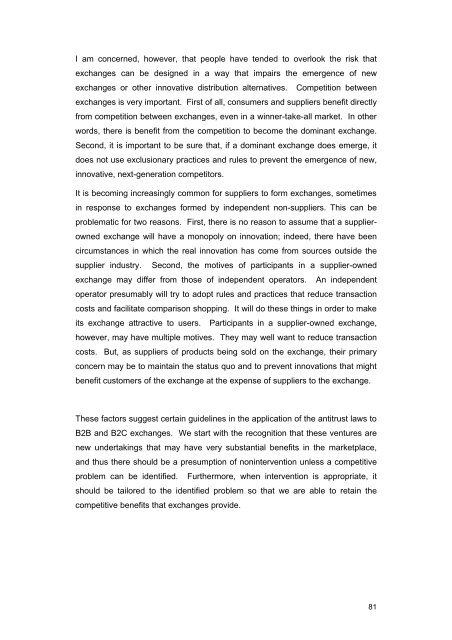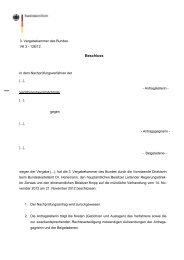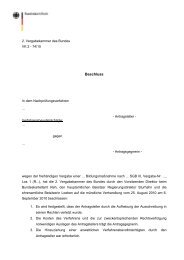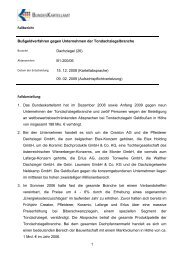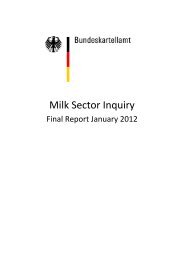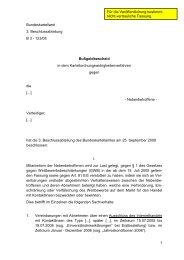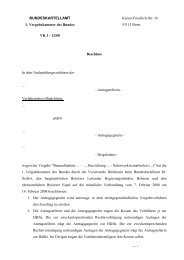21. und 22. Mai X. Internationale ... - Bundeskartellamt
21. und 22. Mai X. Internationale ... - Bundeskartellamt
21. und 22. Mai X. Internationale ... - Bundeskartellamt
Erfolgreiche ePaper selbst erstellen
Machen Sie aus Ihren PDF Publikationen ein blätterbares Flipbook mit unserer einzigartigen Google optimierten e-Paper Software.
I am concerned, however, that people have tended to overlook the risk that<br />
exchanges can be designed in a way that impairs the emergence of new<br />
exchanges or other innovative distribution alternatives. Competition between<br />
exchanges is very important. First of all, consumers and suppliers benefit directly<br />
from competition between exchanges, even in a winner-take-all market. In other<br />
words, there is benefit from the competition to become the dominant exchange.<br />
Second, it is important to be sure that, if a dominant exchange does emerge, it<br />
does not use exclusionary practices and rules to prevent the emergence of new,<br />
innovative, next-generation competitors.<br />
It is becoming increasingly common for suppliers to form exchanges, sometimes<br />
in response to exchanges formed by independent non-suppliers. This can be<br />
problematic for two reasons. First, there is no reason to assume that a supplierowned<br />
exchange will have a monopoly on innovation; indeed, there have been<br />
circumstances in which the real innovation has come from sources outside the<br />
supplier industry. Second, the motives of participants in a supplier-owned<br />
exchange may differ from those of independent operators. An independent<br />
operator presumably will try to adopt rules and practices that reduce transaction<br />
costs and facilitate comparison shopping. It will do these things in order to make<br />
its exchange attractive to users. Participants in a supplier-owned exchange,<br />
however, may have multiple motives. They may well want to reduce transaction<br />
costs. But, as suppliers of products being sold on the exchange, their primary<br />
concern may be to maintain the status quo and to prevent innovations that might<br />
benefit customers of the exchange at the expense of suppliers to the exchange.<br />
These factors suggest certain guidelines in the application of the antitrust laws to<br />
B2B and B2C exchanges. We start with the recognition that these ventures are<br />
new <strong>und</strong>ertakings that may have very substantial benefits in the marketplace,<br />
and thus there should be a presumption of nonintervention unless a competitive<br />
problem can be identified. Furthermore, when intervention is appropriate, it<br />
should be tailored to the identified problem so that we are able to retain the<br />
competitive benefits that exchanges provide.<br />
81


